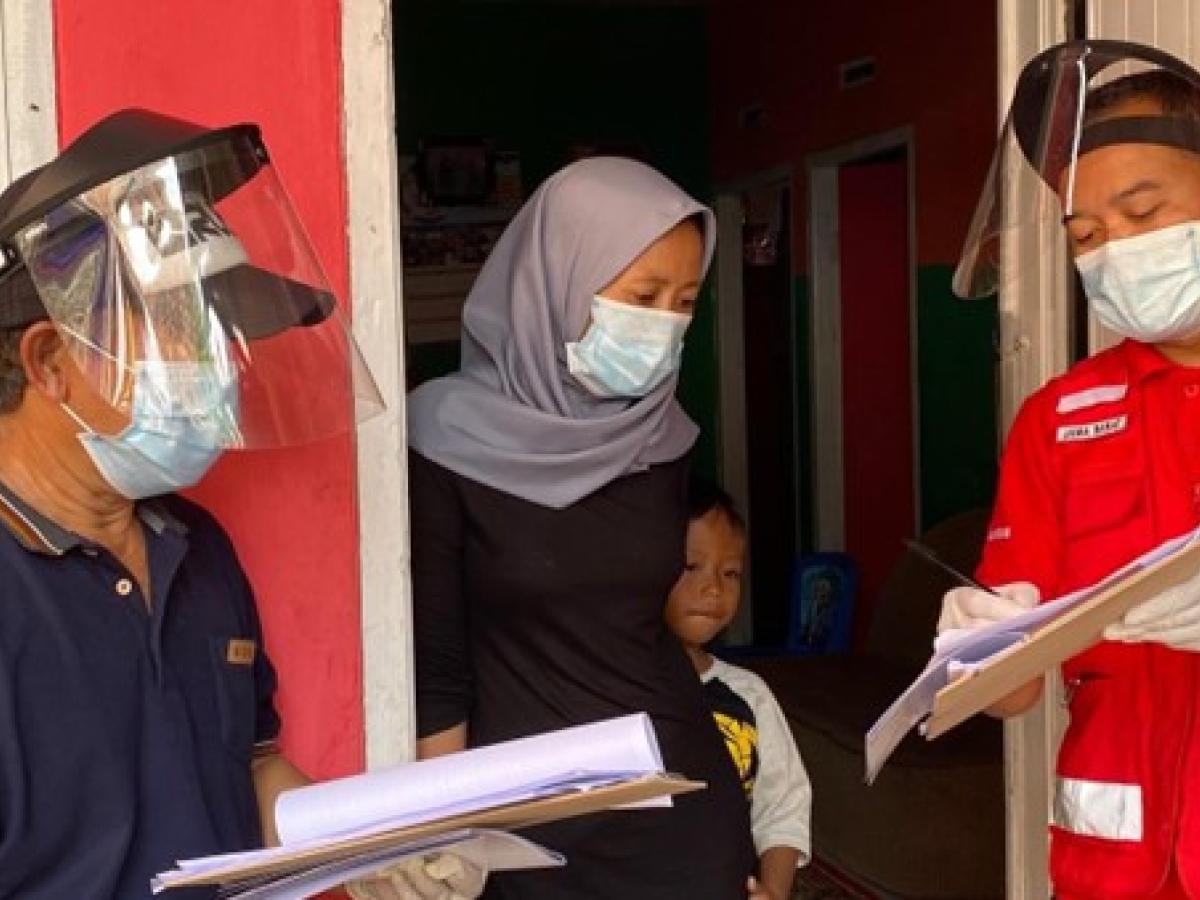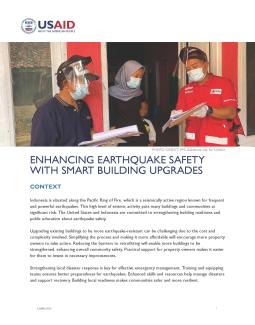CONTEXT
Indonesia is situated along the Pacific Ring of Fire, which is a seismically active region known for frequent and powerful earthquakes. This high level of seismic activity puts many buildings and communities at significant risk. The United States and Indonesia are committed to strengthening building readiness and public education about earthquake safety.
Upgrading existing buildings to be more earthquake-resistant can be challenging due to the cost and complexity involved. Simplifying the process and making it more affordable will encourage more property owners to take action. Reducing the barriers to retrofitting will enable more buildings to be strengthened, enhancing overall community safety. Practical support for property owners makes it easier for them to invest in necessary improvements.
Strengthening local disaster response is key for effective emergency management. Training and equipping teams ensures better preparedness for earthquakes. Enhanced skills and resources help manage disasters and support recovery. Building local readiness makes communities safer and more resilient.
USAID INDONESIA EARTHQUAKE READINESS PHASE II (EQR II)
USAID EQR II aims to reduce preventable damage and loss of life and livelihoods from earthquakes in high-risk urban areas of West Java and East Java. To improve the safety of buildings during earthquakes, USAID EQR II seeks to increase public awareness and adoption of earthquake-resistant building practices and codes. The activity also supports building owners with prototype designs and provides free technical services for building permit applications. USAID EQR II works in six villages in East and West Java.
KEY RESULTS
USAID Indonesia Earthquake Readiness Phase II aims to:
- Enhance earthquake preparedness and promote safer building practices by establishing and training 150 community-based action teams and 80 local retrofitting agents in Sukabumi and Banyuwangi;
- Develop city-wide and community-level earthquake risk assessments, including risk maps and standard operating procedures for targeted neighborhoods in Sukabumi and Banyuwangi;
- Strengthen disaster response by training 20 Indonesian Red Cross shelter team members in Geographic Information System (GIS) mapping and information management and creating six retrofitting education centers in East and West Java; and
- Integrate earthquake-resistant building codes into government disaster risk assessments and streamline the building permit approval process in Sukabumi and Banyuwangi.
CONTACT
Munkhzaya Badarch, USAID at mbadarch@usaid.gov
Muchrizal Harris Ritonga, American Red Cross Indonesia at muchrizal.ritonga@ifrc.org


